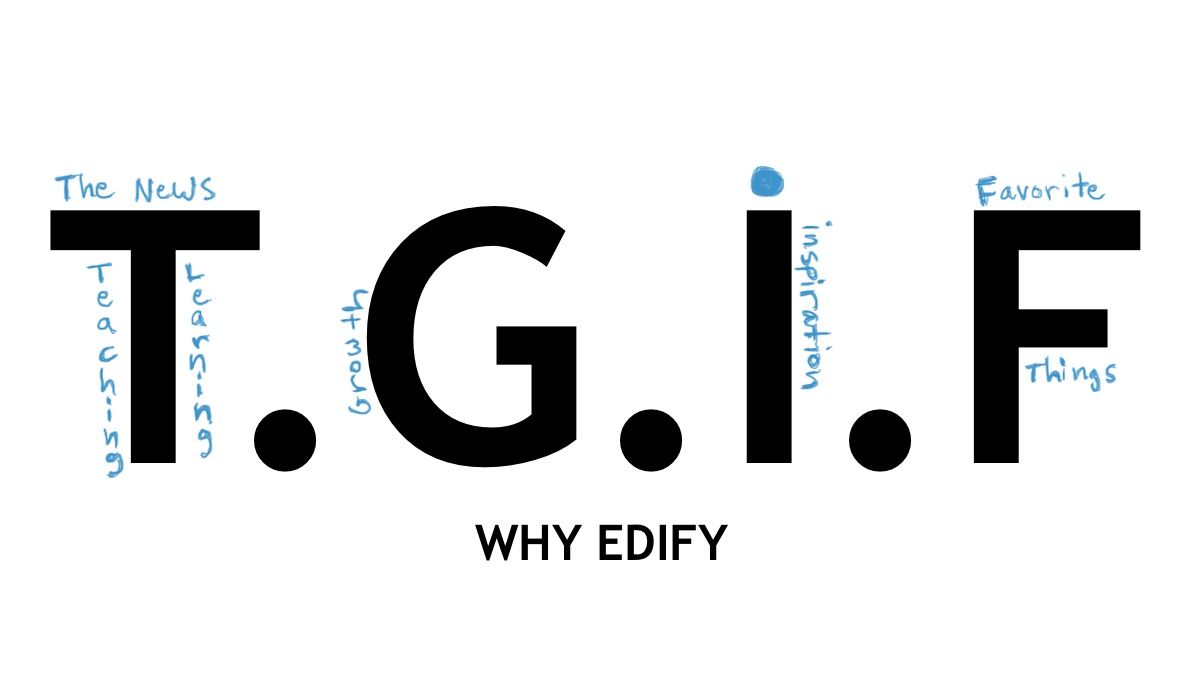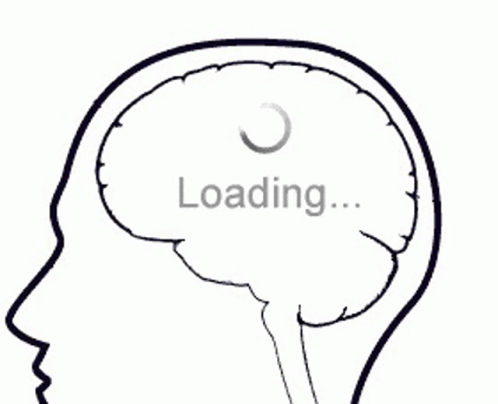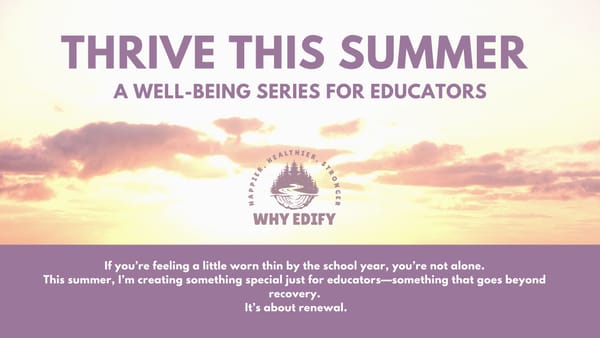T.G.I.F. Newsletter - Magical Things, Respect, and Brain Fog
T.G.I.F. is a weekly newsletter featuring educational news, and teaching, personal development, and professional learning resources.

As an Amazon Associate, I earn from qualifying purchases. All affiliate links are marked with an asterisk (*). Thank You! Read more here.
Happy Friday!
This is the 40th T.G.I.F. Newsletter. This newsletter will always be free. Your support helps with site costs and provides some much-appreciated motivation 🙏. You can keep me energized with a coffee ☕. Thank You!
Check out Refind. Every day Refind picks 7 links from around the web for you, tailored to your interests. It has over 50k+ curious users.
Recommendation - If you haven’t tried Poo~Pourri* you’ve been missing out. Protect the atmosphere of your "teacher" restroom with fresh fall smells*.
Hello Friends and T.G.I.F.
A highlight from this week was a mostly successful attempt at incorporating station rotations in my science classes to teach convection, conduction, and radiation. At first, I wasn't feeling like I had the energy to put everything together, but now I'm glad I did. It's something I can see using again and again with minimal modifications.
I also had the joy of watching my 8th-graders and their 3rd-grade buddies develop "secret" handshakes. Creativity was not in short supply.
Here are some things I thought were worth sharing this week.
The News
Here are some articles that grabbed my attention.
- Magical Thing - I have to admit that years ago I thought that technology would be this magical thing that instantly helped students to learn everything I sent their way. It turns out it’s just another tool that can be overused like everything else. It’s the people involved in education that have the power. Teachers, students, parents, and communities are the “magical thing”. When all of these variables work in synergy to implement research-based best practices learning takes off.
- R.E.S.P.E.C.T. - Education Secretary Miguel Cardana recently said, “I feel the teacher shortage issue is a symptom of a teacher respect issue.” He recommends giving the teachers agency and better working conditions. Evidence suggests that improved outcomes for teachers also improve student outcomes. Increasing teacher compensation is a great place to start, and it’s connected to better student performance. It’s also important not to overlook the impact of improving working conditions. A lighter workload and more planning time will also help retain teachers.
- Vaping - More than one of every 10 high school students is vaping [source]. The number of students who use e-cigarettes has been on the decline, but it’s still prevalent. Some tips to address this situation are to have clear policies and plans in place, avoid the use of scare tactics, use an educational approach, and include adults in anti-vaping efforts.
- Action - Video creation is a highly engaging activity in the classroom. It allows for creativity and self-expression. There are more video creation tools available than ever; here are a few. My two favorite tools are Microsoft Flip (which used to be Flipgrid) and Canva.
- Resource - The multi-modal aspect of Blended Learning offers unique opportunities to engage learners where they are while giving teachers the time and space to help students right when they need it. Check out these station rotation and blended learning teacher tips.
Growth
Personal Development and Wellness Resources
- Money Well Spent - It’s now easier to be misinformed than at any other time in the history of our planet. Associate Professor Martina Rau from the University of Wisconsin is working to develop a tool that people can be installed in web browsers. This tool helps people spot misleading information in the graphs they come across while browsing the internet. “The goal is to “inoculate” people against misinformation in graphs then provide “boosters” as needed.” Being able to separate fact from fiction is a skill, that when practiced, improves society.
- Kaizen - This is the principle of gradual change. The idea is to start with small changes and sustain those changes over time. This eventually leads to big results. The Kaizen philosophy has applications in all facets of life.
- Brain Fog - Most people know that walking is great for the health of your heart, lungs, muscles, and blood pressure. It’s also great for your brain. Those benefits start to kick in at 4,000 steps. The brain benefits of walking apply to adults and children alike. Walking also improves our focus and ability to remember things.

Inspiration
Here is a quote I’ve been revisiting this week:
"When you improve a little each day, eventually big things occur. When you improve conditioning a little each day, eventually you have a big improvement in conditioning. Not tomorrow, not the next day, but eventually a big gain is made. Don’t look for the big, quick improvement. Seek the small improvement one day at a time. That’s the only way it happens—and when it happens, it lasts.” —John Wooden, one of the most successful coaches in the history of college basketball
Favorite Things
- 🤗 Nice News - James Warren builds benches for local bus stops. Each bench is labeled with the words, "Be Kind."
- 🎶 Music - Check out the 150 Best Albums of the 1990s. I'm partial to numbers 2, 67, and 68. Which albums make up your top 3?
- 🔧 Gadget - TechMatte Charging Stand for Apple Pencil *- I just drop it in, wait a few minutes and my Apple Pencil is charged.
Have a great weekend!




